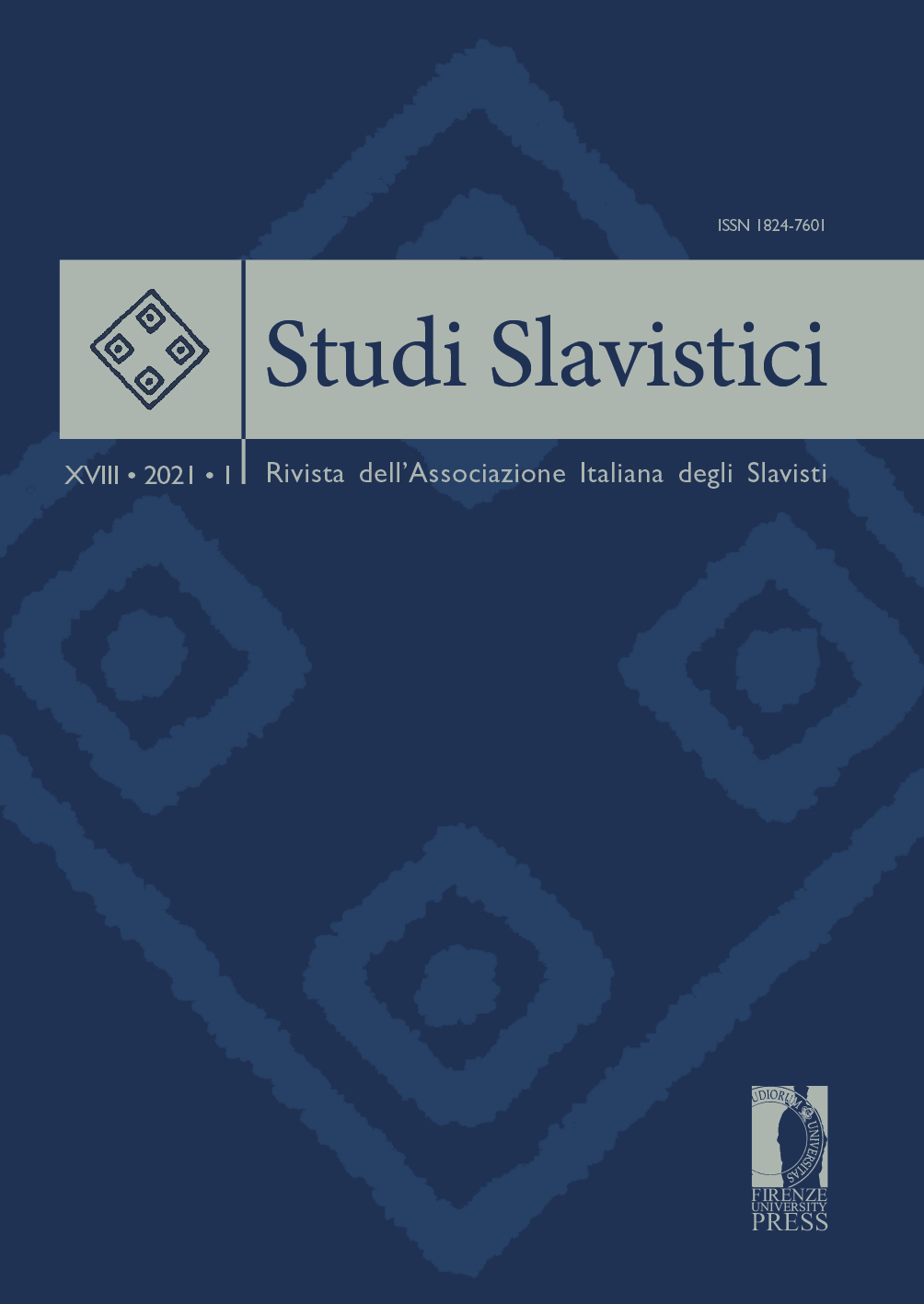The Prison Experience and Gulag Poems in the Work (1937-1943) by Anastasija Cvetaeva: Overcoming the ‘Zone’
Published 2021-07-20
Keywords
- Anastasija Cvetaeva,
- Gulag Poetry,
- Zone Poetry,
- Poetics of Modernism
Abstract
This research paper focuses on the prison experience and gulag poems (1937-1943) in the work by Anastasija Cvetaeva which was published in 1995. I present an analysis of Cvetaeva’s poems and argue that her work can be considered as psychological poetry describing mental experiences and engaging with witnessing and memory. Her lyrics provide a type of poetic expression addressing the multiple psychological aspects of the human existence and which is personal testimony of the experience of the so-called ‘zone’ (prison, lager, and transference). The modernist poetics of Cvetaeva’s (primacy of consciousness and the spiritual realm, the concept of ‘great time’, cultural openness, mythopoetic universality, intertextuality, intermediality, complex symbolic language, and humour) is examined as a form of coping mechanism having a cathartic effect. Poetry becomes the therapeutic and symbolic act for the author to survive the suppressive and agonizing experience of the ‘zone’; the innermost reflection on simple aspects of human life, such as nature, freedom, individuality, ethics, art, creativity, joy, and communication, is a meaning-making process. The following modernist strategies of resistance are identified: 1) poetic creativity as internal liberation, metaphysical protest, and aesthetic form of escape into an infinite macrocosm; 2) poetic perception of the experience of the ‘zone’ in the ‘great time’ of culture, history, and myth; 3) intermedial integration; 4) poetic imagination (food aesthetization) and food as a compensatory way to overcome prison hunger and celebrate life (joy, belonging, and life as a feast); 5) mythologization of Polish identity (love of freedom, pride, and dignity); 6) escape into the space of memory, myth and history; the contemplation of nature; 7) humour to restore a potential loss of dignity, challenge the established order and endure the brutal and incomprehensible; 8) Christian mysticism, kenotic prayer, prayers from the Bible, esoteric-astrology, Rosicrucianism, Dante’s transcendent symbolism, and tragic catharsis.



